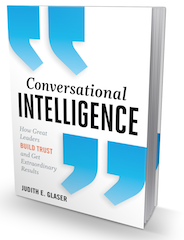“Great Negotiators Know How To Ask Good and Better Questions“ – Negotiation Tip of the Week

“Questions are the gateway to knowledge. Good questions light the path to that gateway.” -Greg Williams, The Master Negotiator & Body Language Expert (Click to Tweet)
“Great Negotiators Know How To Ask Good and Better Questions“
Some negotiators believe, there’s no such thing as a bad question. They believe all questions solicit additional information – information that you wouldn’t receive if the question went unasked. I don’t think that’s true!
Some questions weaken your negotiation position. They project a lack of perceived foresight. And they can allow openings for the other negotiator to take control. But you can turn some weak questions into better ones that benefit your negotiation position.
If you’re somewhat confused right now, how do you feel about your confusion? Do you possess a desire to discover more on this topic? Do you have some other need? That’s the power of questions. They can control the thoughts of the other negotiator and put you in a power position. Questions can also lead to the other negotiator pulling away from you. Thus, you must know how and when to use them.
This article delivers insights about when and how to ask better questions to improve your negotiation position.
Bad/Good Questions:
A bad question is made worse by its timing. That can decrease the perception of your persona and make you appear weak. But what might appear to be a bad question posed with proper timing can gain a wealth of information. That would turn it into a good question.
When asking questions such as, how can I help you? Or, what can I do to assist – you display a lack of knowledge about the needs of the person you’re soliciting?
Nevertheless, there is a place for questions that may appear to be weak or lack specificity. You’d use them when they enhance the planned persona you wish to project. In such times, you’d use the mentioned questions as tools of positioning. Questions such as, how can I help you will cast a broader net. It will gain a deeper insight into the information you’re seeking.
Better Questions:
Better questions solicit better information. And they heightened your sense of control as a negotiator. Such questions …
- Use what-if scenarios. What-if scenarios explore the realm of possibility. They don’t commit you to action unless the scenario is agreed on by all parties. Example – what if we lowered your cost and shipped the items early, could we close the deal today? If the other negotiator was in agreement, you’d have a deal. If she wasn’t, you will have gained insight into her negotiation position. Either way, you’ve gained valuable information.
- Challenge existing norms. When challenging popular beliefs, you’ll attract attention. Depending on how your questions are received you’ll become more influential. You might be placed in a position of having to defend your position, too. So, consider the types of questions you’ll use to challenge popular norms and how they’ll position you in the negotiation.
- Can’t be answered quickly. When asking questions that someone can’t readily answer, they go into thought mode. Depending on the environment, you can throw them a lifeline by answering the question yourself. Or, you can let them flounder. By allowing them to flounder, you allow others to view their lack of knowledge. That will decrease their perceived expertise. By saving them, they’re spared from floundering. That will ingratiate them to you.
Assumptive Questions:
Assumptive questions allow you to be perceived as possibly knowing more than you do. You can use them to test the other negotiator’s position or offer. To do so, make a statement that infers you have secret information. You can also make the statement sound like a question. Example – “You’ve given larger discounts in the past, correct?” After that, be very attuned to the response per the inflection in the voice and mannerisms displayed. Look for signs of agreement, lies, or doubt. If you sense either, probe deeper.
The questions asked determines the information that’s received. And the timing of those questions detracts from or enhances that information. To increase your ability to gather quality information in your negotiations, ask good timely questions that lead to better answers … and everything will be right with the world.
Remember, you’re always negotiating!
Listen to Greg’s podcast at https://anchor.fm/themasternegotiator
After reading this article, what are you thinking? I’d really like to know. Reach me at Greg@TheMasterNegotiator.com
To receive Greg’s free “Negotiation Tip of the Week” and the “Sunday Negotiation Insight” click here http://www.themasternegotiator.com/greg-williams/
#Questions #Negotiate #Process #Business #Progress #SmallBusiness #Negotiation #Negotiator #NegotiatingWithABully #Power #Perception #emotionalcontrol #relationships #BodyLanguageExpert #HowToNegotiateBetter #CSuite #TheMasterNegotiator #ControlEmotions #GregWilliams
- [PRESS RELEASE] C-Suite Network™ Expands to Dallas and Announces Game-Changing Partnership with Flex Workspace Solutions - January 9, 2024
- Ushering in the Future 500 – White Paper - September 8, 2022
- Make Candor a Priority - September 8, 2022






